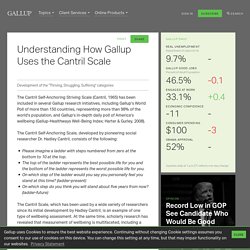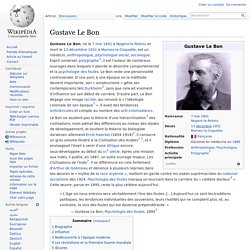

Futuribles. Comme je m’en suis expliqué dans un récent éditorial [1], la crise économique et sociale, loin de revêtir un caractère purement conjoncturel, résulte sans doute d’une mutation structurelle entre un modèle de société qui n’en finit pas de mourir et un autre qui n’en finit pas de naître.

Et si certains s’opposent à cette mutation radicale ; d’autres en revanche en sont déjà les acteurs. Ce phénomène ne résulte pas seulement d’une transformation profonde du contexte socio-économique. Il s’enracine aussi dans une évolution des valeurs et des comportements individuels et collectifs qui, évidemment, ne fait pas l’unanimité. Certains en effet se cramponnent, surtout dans une période de grandes incertitudes, à un ordre moral qu’ils considèrent en délitement ; ils peuvent même être à l’origine de mouvements sociaux plus ou moins importants et radicaux.
. [1]. Hadley Cantril. Hadley Cantril (1906–1969) was an American researcher of public opinion. Biography[edit] Public opinion research[edit] Though trained as a psychologist, Cantril's most important work concerned the then-new topic of public opinion research. Influenced initially by the success of George Gallup and Elmo Roper during the 1936 presidential election, Cantril sought to apply their systematic polling technique to academic social psychology.[3] Cantril was a founding editor of Public Opinion Quarterly.
In 1940 he founded Princeton University's Office of Public Opinion Research.[4] and from autumn 1940 onwards provided the Roosevelt administration with confidential information about American public opinion, particularly regarding the war in Europe.[5] In 1942 Cantril conducted a small-sample survey of Vichy officials in Morocco, prior to Operation Torch, that revealed the intensity of the anti-British sentiment of the French forces there. The psychology of social movements - Hadley Cantril. Hadley Cantril. Hadley Cantril. Hadley Cantril. Understanding How Gallup Uses the Cantril Scale.
The Cantril Self-Anchoring Striving Scale (Cantril, 1965) has been included in several Gallup research initiatives, including Gallup's World Poll of more than 150 countries, representing more than 98% of the world's population, and Gallup's in-depth daily poll of America's wellbeing (Gallup-Healthways Well-Being Index; Harter & Gurley, 2008).

The Cantril Self-Anchoring Scale, developed by pioneering social researcher Dr. Hadley Cantril, consists of the following: Please imagine a ladder with steps numbered from zero at the bottom to 10 at the top.The top of the ladder represents the best possible life for you and the bottom of the ladder represents the worst possible life for you.On which step of the ladder would you say you personally feel you stand at this time? (ladder-present)On which step do you think you will stand about five years from now? (ladder-future) One distinct value of the Cantril Scale is the fact that a respondent can self-anchor themselves based on their perspective. Gustave Le Bon.
Un article de Wikipédia, l'encyclopédie libre.

Gustave Le Bon « L’âge où nous entrons sera véritablement l’ère des foules. […] Aujourd'hui ce sont les traditions politiques, les tendances individuelles des souverains, leurs rivalités qui ne comptent plus, et, au contraire, la voix des foules qui est devenue prépondérante. » Biographie[modifier | modifier le code] Né en 1841 à Nogent-le-Rotrou, où son père était conservateur des hypothèques, il fit ses études au lycée de Tours, puis à la faculté de médecine de Paris, où il obtient le titre de docteur en médecine[6] en 1866[7]. Il parcourut l’Europe, l'Asie et l'Afrique du Nord entre les années 1860 et 1880[6]. Que nous apprennent les données subjectives ? Une application au lien entre revenu et bien-être.
Le concept de Qualité de Vie. Mesure subjective. BIB.